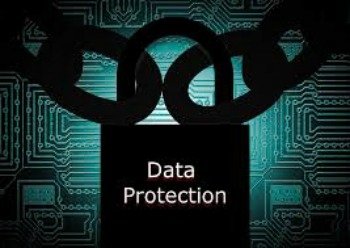You should not take the security and protection of your data lightly whether online or offline. Accidents can happen and you may end up losing precious data without even having the chance to save a backup copy that you can access from another device. And at a day and age when personal data of millions of people are scattered all over the web, it is more important than ever to protect your data at all cost.
 There are various cyber security measures you can adopt depending on your needs. But before that, among the first measure you can take is to transfer and save another copy of important files/ data you have in a separate storage device for safekeeping or risk having your personal data in the wrong hands, or worse, lost forever.
There are various cyber security measures you can adopt depending on your needs. But before that, among the first measure you can take is to transfer and save another copy of important files/ data you have in a separate storage device for safekeeping or risk having your personal data in the wrong hands, or worse, lost forever.
Consumer Reports has announced it is to launch the first phase of a collaborative effort to set up a new standard for digital security for consumers, in an attempt to boost consumer confidence in privacy and data security.
The new initiative will aim to bring out the positive aspects of previous similar schemes, and will be carried out in conjunction with several partners within the industry.
Safeguarding the security and privacy of consumers will be the end goal of the new measures.
The US-based nonprofit organization is hopeful that the industry will adopt the standard in the development of various digital products, including connected devices, software and mobile apps.
The aims of the new standard include ensuring all products, whether they are laptops, security cameras or even cars, are built with the robustness needed to withstand security threats.
The standard will also aim to inform consumers about what data are being collected by their products, while at the same time offering more clarity when it comes to the idea of ownership.
And cyber security should be taken seriously not just on a personal level. As more and more businesses establish their online presence, it is more important than ever to protect the company’s data and prevent thieves from gaining access to both company and consumer information.
The data privacy and access discussion gets all the more complicated in the age of IoT.
Some organizations might soon suffer from data paucity -- getting locked, outbid or otherwise shut out of critical new data sources that could help optimize future business. While I believe that every data-driven organization should start planning today to avoid ending up data poor, this concern is just one of many potential data-related problems arising in our new big data, streaming, internet of things (IoT) world. In fact, issues with getting the right data will become so critical that I predict a new strategic data enablement discipline will emerge to not just manage and protect valuable data, but to ensure access to all the necessary -- and valid -- data the corporation might need to remain competitive.
And the problem is more complex than it seems. Just look around you and take in just how digital our world has become, where the personal and work lives of people all revolve around the web and the machines they are using.
You might counter that there are ways to ensure some basic privacy by aggregating and anonymizing personally identifying information out of such data, but we already know it's difficult, if not impossible, to truly anonymize stores of big data. Accumulated masses of IoT data can easily contain deeply embedded clues that can be correlated with public data sets to restore identifying information.
Imagine that your car reports where it's parked most nights. Or that smart components within the car can track when they were last serviced or upgraded. A business that makes clutches might learn about a car owner's home address -- and thus their identity -- travel patterns and driving habits.
Some supply chains already push the monitoring and proactive maintenance for embedded -- or even merely associated -- components back up their chains. Wal-Mart made a fortune offering its suppliers some transparency into sales in exchange for having those suppliers maintain their own inventory in stores. This seemed fine, since the traditional goods we've bought didn't keep reporting on us once we carried them home. But now, new, intelligent devices we buy and plug in keep up a continual connection and data flow up to a third-party service. Who's got eyes on all that big data about us that we unwittingly generate?
One can never stress more than enough the value of cyber security and the importance of protecting your data. You input personal data in every social media account you have – and all of them are also connected to one or more email accounts. You share photos of yourself and the people you love in these platforms, and at times, even the location you are in, in real time. You not only endanger personal details but even your physical security when criminals are aware you are out of the house and on vacation somewhere far away by simply posting photos of your mini-getaways on the web.
Why Take Data Security Seriously? was initially seen on http://www.harddrivefailurerecovery.net/
source https://www.harddrivefailurerecovery.net/why-take-data-security-seriously/
No comments:
Post a Comment